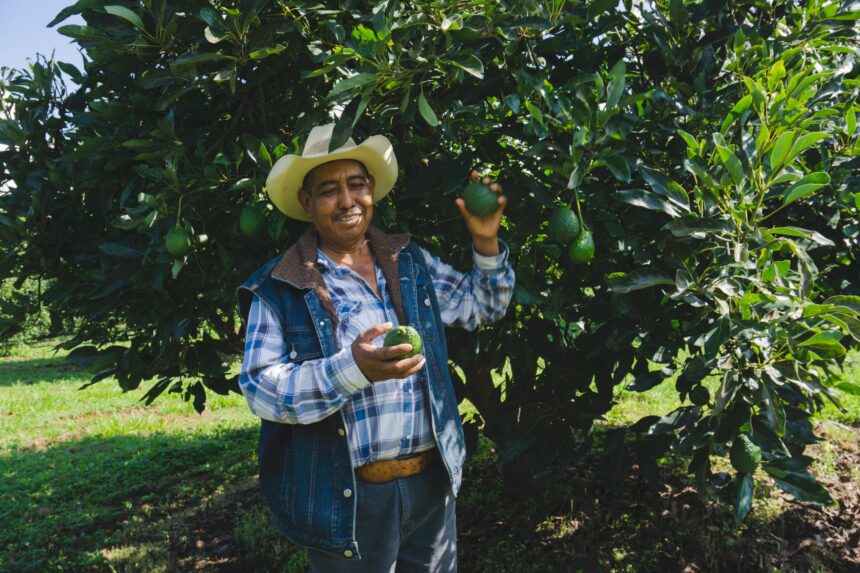In recent years, the Chinese market has emerged as a lucrative destination for avocado exports, creating a significant opportunity for African farmers. With growing consumer awareness of the health benefits associated with avocados, demand for the fruit in China has skyrocketed. As African farmers, tapping into this vast market offers an unprecedented chance to increase profits, diversify income sources, and secure long-term trade relationships. However, succeeding in this market requires understanding its dynamics, including consumer preferences, export regulations, and the competition landscape.
The Rising Demand for Avocados in China
The demand for avocados in China has surged due to several factors:
• Health Consciousness: Chinese consumers have become more health-conscious, seeking nutrient-rich foods that offer benefits such as healthy fats, vitamins, and antioxidants. Avocados are often marketed as a “superfood,” making them particularly attractive.
• Growing Middle Class: China’s expanding middle class has more disposable income and is willing to spend on premium products, including imported fruits like avocados. This demographic is particularly interested in imported goods perceived as fresh, healthy, and of high quality.
• Culinary Adoption: Once a relatively unknown fruit in China, avocados are becoming more common in culinary practices, including in salads, sushi, smoothies, and as a toast topping—mirroring global food trends.
This increasing demand has created a space for African avocado producers to enter the market, as China’s local production is limited and does not meet the soaring demand.
African Countries Already Tapping Into the Chinese Market
African countries, especially Kenya, Tanzania, and South Africa, have already made strides in exporting avocados to China. Kenya, in particular, gained market access in 2019 and is now one of the largest exporters of avocados to China from Africa. South Africa, which gained access in 2020, is another key player, offering high-quality Hass avocados that are favored in international markets.
Several factors have contributed to the success of these countries:
• Quality Produce: African avocados, especially the Hass variety, are highly sought after due to their creamy texture and long shelf life. These qualities make them ideal for export and transportation across long distances.
• Government Agreements: Bilateral trade agreements between African governments and China have eased restrictions and facilitated smoother export processes. These agreements, paired with strict adherence to Chinese import standards, have helped secure market access.
• Competitive Advantage: African avocado farms are often close to the equator, allowing for year-round production. This gives African exporters a unique competitive advantage, as they can supply the Chinese market even during the off-season for other countries.
Challenges and Barriers to Entry
While the Chinese avocado market offers many opportunities, it is not without its challenges. African farmers looking to enter the market must consider several factors:
1. Strict Phytosanitary Regulations
• China has strict phytosanitary requirements to prevent the spread of pests and diseases through imported fruits. Farmers need to ensure their avocados meet China’s health and safety standards, including compliance with residue limits for pesticides and other chemicals. Proper handling, post-harvest treatment, and cold storage are essential to meet these regulations.
2. Supply Chain Logistics
• The logistics of exporting avocados from Africa to China can be complex. Avocados are perishable, and maintaining their quality throughout the supply chain is crucial. This requires investment in cold storage, reliable transportation, and efficient distribution channels. African farmers or exporters must collaborate with logistics partners who can manage these challenges effectively.
3. Competition from Other Countries
• African exporters face competition from established players in the avocado market, including Mexico, Peru, and Chile. These countries have more developed supply chains, larger production capacities, and extensive trade relationships with China. African farmers must focus on offering consistent quality, competitive pricing, and value-added services to differentiate themselves.
4. Consumer Preferences
• Chinese consumers are still becoming familiar with avocados, and their preferences may differ from other markets. For instance, while the Hass avocado is popular in many countries, Chinese consumers may prefer smoother varieties. African farmers should pay attention to consumer trends and adapt their product offerings accordingly.
5. Branding and Marketing
• African farmers must establish their avocados as premium products in the Chinese market. This can be achieved through branding strategies that emphasize the quality, sustainability, and health benefits of African-grown avocados. Collaborating with Chinese distributors, retailers, and influencers can help boost the visibility and reputation of African avocados.
How African Farmers Can Seize the Opportunity
Despite the challenges, African farmers have numerous avenues to succeed in the Chinese avocado market:
1. Focus on Quality
• Consistency and quality are critical to establishing a foothold in the Chinese market. Farmers should invest in proper farm management practices, from planting and harvesting to post-harvest handling. Meeting export standards and ensuring that avocados arrive in China in top condition is essential.
2. Collaborate with Exporters
• Many small-scale African farmers may find it difficult to export avocados directly to China. Partnering with larger exporters, cooperatives, or government-backed trade organizations can provide the necessary infrastructure and knowledge for entering the market. Collaborating also allows farmers to pool resources and negotiate better deals with Chinese buyers.
3. Sustainable Practices
• As consumers around the world become more environmentally conscious, African farmers can stand out by adopting sustainable farming practices. This includes water conservation, organic farming methods, and reducing the carbon footprint of exports. Highlighting sustainability in marketing efforts can attract Chinese consumers who prioritize eco-friendly products.
4. Timing the Harvest
• Timing is everything in export markets. African farmers can take advantage of counter-seasonal production to supply avocados to China during periods when other producing countries are off-season. This ensures that African avocados have less competition and can fetch higher prices.
5. Invest in Technology and Infrastructure
• Investing in cold chain technology, packaging innovations, and efficient transportation is critical to ensuring the freshness and quality of avocados. African farmers who can maintain high-quality standards throughout the supply chain will have a better chance of success in the Chinese market.
Looking Ahead: The Future of African Avocado Exports to China
The avocado boom in China is still in its early stages, and the demand is expected to continue rising. As more African countries negotiate trade agreements with China and improve their export capacity, the continent is poised to become a key supplier of avocados to this growing market.
For African farmers, this presents a unique opportunity to diversify their income sources, build long-term trade relationships, and increase profitability. However, success will depend on understanding the market dynamics, investing in quality, and overcoming logistical challenges. With the right approach, African avocado producers can capitalize on the growing demand for this nutritious fruit in China, ensuring a brighter future for their farming enterprises.
The Chinese avocado market offers tremendous potential for African farmers who are prepared to meet its demands. By focusing on quality, leveraging strategic partnerships, and investing in infrastructure, African avocado producers can tap into this lucrative market and compete on a global stage. The opportunities are vast, and with proper planning, African farmers can play a pivotal role in meeting China’s growing appetite for avocados.
Join 'Farmers Mag' WhatsApp Channel
Get the latest Farming news and tips delivered straight to your WhatsApp
CLICK HERE TO JOIN






